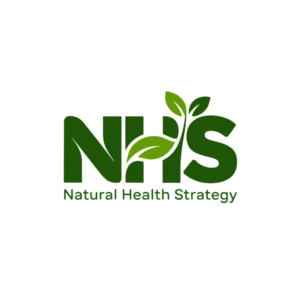Echinacea has been a flora of great value for medicinal purposes for many centuries. By the color of its flowers, it is quite an unusual plant, typically featuring purple or pink blooms with a cone-shaped central part. It is native to North America, found growing freely in prairies and open woodlands. It belongs to the daisy family and is well-known for its hardiness and the vibrant colors of its flowers.
Some commonly used species include:
But the beauty of echinacea is not only skin-deep. For thousands of years, it has been used medicinally. The indigenous peoples were among the first to tap into its medicinal value against infections, wounds, and respiratory problems. Early European settlers soon followed by embracing this herb for its health-promoting properties.
In the article below, we highlight a few benefits of echinacea that have kept this herb popular for so long. You will learn about its role in boosting the immune system and discover how it is used today, including insights from scientific research.
By the end, you will understand why this natural health remedy continues to be so popular today.
The Benefits of Echinacea: Supporting Your Health Naturally
Echinacea is a versatile herb with a range of health benefits that make it a popular choice for those seeking natural remedies. Here’s how this natural remedy can support your well-being:
Stimulates Immune System
Echinacea is said to improve immunity. It provides your body with the ability to fight infections, especially by increasing white blood cell production. Thus, this may be very effective in preventing colds and reducing their duration. Studies in journals like The Lancet Infectious Diseases show that Echinacea lowers the chances of catching a cold. It may also help lessen the duration of the illness.
Reduces Inflammation
Besides immune support, Echinacea reduces inflammation. The herb’s anti-inflammatory properties make it effective against disorders like arthritis, which cause pain and swelling. A study in Phytomedicine highlighted Echinacea’s potential to alleviate inflammation in both animal models and human trials.
Antioxidant Protection
Another benefit of Echinacea, besides boosting immune responses, is its antioxidant protection. High amounts of flavonoids and cichoric acid, among other active compounds, are critical in protecting cells against oxidative stress. Actually, protection is one way through which chronic diseases, such as heart diseases and cancers are lowered.
Respiratory Health Supported
Echinacea is also beneficial to the respiratory system. Traditional uses include treating respiratory infections like bronchitis and sinusitis, which may reduce the severity of these conditions.
Nourishes the Skin
In addition to the respiratory system, Echinacea is also beneficial for the skin. This plant extract can be applied topically to assist in the healing of wounds and reduce skin irritability. Thus, it could be part of one’s skincare regimen that may soothe minor skin issues.
Can Help in the Regulation of Blood Sugar Levels
Recent research has shown that Echinacea plays a regulatory role in blood sugar levels. Early studies suggest that this herb may increase insulin sensitivity, helping to control blood sugar levels. However, these findings are still in the preliminary stages.
Mental Health Support
Other recent studies attribute the herb with maintaining mental health. Some studies suggest that Echinacea angustifolia may reduce anxiety and control stress, offering a natural alternative for managing mental health challenges.
Given the many benefits listed above, it’s no surprise that this herb remains a staple in natural medicine. Whether boosting your immune system, supporting skin health, or enhancing overall well-being, Echinacea offers an effective solution.
This herb can be introduced into a person’s life for a myriad of health reasons. Whether one wishes to strengthen his immune system or simply wants to feel healthy, Echinacea is an herbal alternative medicine that one could resort to.
How to Use Echinacea

Its various forms make it pretty easy to add this herb into your regimen. Of course, fully understanding how to take Echinacea-fully understanding dosages-will be the best way to get the most from this wonderful plant.
Forms of Echinacea
This herbal supplement comes in various convenient forms, allowing you to select the one that suits you best:
- Teas: The most common teas used to alleviate a sore throat or avoid respiratory illness are Echinacea tea. These are made by steeping the dried herb in hot water and can be sipped throughout the day.
- Tinctures: These are typically the liquid forms of Echinacea, which can provide a highly concentrated dose of the herb. They are always consumed in the form of a few drops in the mouth or after dilution in some water. Generally, tinctures are quick and efficient in uptake when an individual needs an energetic dose.
- Capsules and Tablets: For those who prefer a more controlled dosage, Echinacea is also available in capsule or tablet form. These are convenient for daily use and ensure that you are getting a consistent amount of the herb with each dose.
- Topical Applications: You can apply Echinacea creams, ointments, and salves externally to treat minor infections and reduce skin irritation. They also help to promote wound healing.
Dosage and Administration
The dose of Echinacea you may want can vary significantly, depending on the form you are using and the purpose for which you use it.
- For Immune Support: For immune support, take 300-500 mg of the extract in capsule form three times daily. For tinctures, take 2.5 mL, about 1/2 teaspoon, three times daily.
- For Acute Illnesses: For acute conditions, larger doses may be taken initially when a cold or flu starts. Some people take up to 5 mL of the tincture every two hours on the first day, reducing the frequency as symptoms improve.
- Topical Use: For topical skin use, follow the directions on the label of the specific product. Apply Echinacea cream or ointment to the affected area two to three times a day.
A physician or healthcare professional can recommend and adjust the dosage, especially for pregnant or lactating mothers or those taking medications. The dosage may also vary based on the specific product or type of Echinacea being used.
Combination with Other Herbs
Most people combine Echinacea with other herbs to increase its efficacy. Some of the usual combinations are:
- Echinacea and Goldenseal: This is in high demand among people because of its immunity-boosting properties, especially for colds and flu. This herb is combined with Goldenseal due to its antibacterial and anti-inflammatory nature.
- Echinacea and Elderberry: The elderberry is a highly beneficial herb that offers a substantial boost to immunity. When paired with Echinacea, it may help lessen the severity and duration of colds and other respiratory infections.
- Echinacea and Astragalus: Astragalus is an adaptogenic plant; it supports stress management in one’s body, nurtures immunity. In combination, it presents whole immunity mainly to the person who is undergoing more stress.
Such combinations have been very wide in many herbal supplements, the common rationale being synergistic benefit for given health areas.
It makes more sense when you learn to appreciate the various forms Echinacea takes. Use them appropriately based on how they meet your specific health needs. The herb is versatile and offers many uses. It can help prevent illness, support the immune system, or speed up wound healing.
Scientific Evidence and Controversies Surrounding Echinacea

Most studies have focused on Echinacea, primarily for the prevention and treatment of the common cold. The results obtained so far from these studies remain inconsistent. While some studies indicate that this herb may reduce the duration and severity of the common cold, others show no significant changes.
A meta-analysis published by the Cochrane Database of Systematic Reviews found some benefits of Echinacea. However, it also highlighted variations in studies due to differences in species, plant parts, and preparations used in the trials.
Debates and Criticisms
There is yet a lot of controversy regarding its effectiveness. Main controversies include the following :
- Variability in Results: There are different species and formulations of Echinacea used along with a number of different study designs that make the literature inconsistent. For example some studies use Echinacea purpurea, while others may be using Echinacea angustifolia producing different results.
- Quality and Dosage: The quality of these herbal products can vary significantly, affecting their efficacy. Products with low concentrations of active compounds may be less effective, and improper dosing can lead to ineffective results or possible side effects.
- Placebo Effect: Some believe that the derived benefits are no more than a representation of the placebo effect. This created doubt in the minds of the readers regarding the actual effectiveness of Echinacea.
- Need for Standardized Research: Experts agree that more rigorous standardized research is needed to clarify Echinacea’s benefits and establish guidelines for its use and prescription. This would include which species, form, and dosage are best for each condition.
For further reading and overview, you can explore the information provided by the National Center for Complementary and Integrative Health (NCCIH).
Side Effects and Possible Warnings about Echinacea

Even though most people can take Echinacea without problems, possible side effects of the herb may include:
- Gastrointestinal discomfort: nausea, stomach ache, or diarrhea.
- Allergic reactions: Patients with known allergies to plants in the Asteraceae family, such as ragweed, chrysanthemums, marigolds, and daisies, should take caution.
Who Should Avoid Echinacea
Certain groups should use this herb with caution or avoid it altogether:
- Autoimmune diseases: This botanical may potentiate the course of a disease such as lupus or rheumatoid arthritis.
- Allergies to other plants: Those allergic to daisies, marigolds, or ragweed should avoid Echinacea.
- Pregnancy and breastfeeding: The safety of Echinacea during pregnancy and breastfeeding has not been well-documented. Consult a healthcare professional before using this herb in these situations.
Medication Interactions
Echinacea may interact with the following medications:
- Immunosuppressants: Echinacea may interfere with the pharmacologic action of immunosuppressants.
- CYP450 substrates: Its concomitant use may interfere with the hepatic metabolism of the drugs thereby either potentiate or depress its activity.
- Other medications: Consult a doctor before combining Echinacea with over-the-counter or prescription medications to prevent potential interactions.
Understanding potential side effects, precautions, and interactions empowers you to make informed decisions about whether Echinacea is the right choice for you. Always consult your health professional if you have any concerns. Conclusion
Conclusion
Echinacea exhibits a wide range of health-related benefits, from enhancing immune function to possessing anti-inflammatory and antioxidant properties. Companies today sell teas, tinctures, and capsules made from the plant. When used appropriately, the benefits associated with echinacea are generally safe; however, caution should be exercised for individuals with autoimmune disorders, plant allergies, pregnancy, and lactation.
You can add Echinacea to enhance your wellness, but consult a health professional before it becomes part of your routine, especially if underlying health conditions arise. If you choose to use the benefits of Echinacea, the healthcare expert will confirm whether it works for you.





